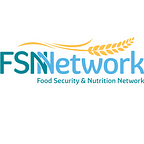RKSM 2023 In Review: In Conversation with Christine Bukania
By: Christine Bukania, Intergovernmental Authority on Development
What is your name and the organization you work for?
My name is Christine Bukania and I work with the Intergovernmental Authority on Development (IGAD) at the Secretariat in Djibouti and I’m the head of planning and programming.
Why do you think the Regional Knowledge Sharing Meeting: Greater Horn of Africa (RKSM) is important at this point in time?
As you know, IGAD is an organization that has membership from eight countries in the Horn of Africa region, and at the current time this region has been faced with many recurrent crises of all kinds — some of them natural, some of them man-made. Having an event like this at this time is really critical because we cannot run away from the fact that the region will always have humanitarian needs.
At the same time, we need to continue the development efforts that we’ve been making, and conflict is a big issue in the region so also integrating peace and conflict sensitivity in the way we program is very, very important. Having partners coming together, both implementing and funding partners and government representatives, to discuss how we can effectively integrate these elements of humanitarian work, development, and peace is really critical for what we want to achieve in the Horn of Africa region.
Can you describe your experience collaborating, sharing, and learning with other participants during the RKSM?
The sessions were intentionally built so that participants could build their understanding of specific strands of the Humanitarian-Development-Peace nexus. At the same time, we had an opportunity to interact with people of a similar technical interest, and then take that information into our country groups. At the end of each day, the country groups shared their outputs. In my opinion, this structure enabled sharing of experiences and lessons at an individual level, in thematic groups, and then finally, in the multi-thematic country groups. In terms of collaboration, it expanded the circle of people I met.
What did you appreciate most about participating in the RKSM?
I appreciate the team that planned, organized, and facilitated the event! We worked and achieved so much within the allocated time because of their skill and dedication. We had enough time to relax and connect informally and the choice of the venue was well thought out — we walked a lot and enjoyed nature as a bonus. I appreciated the attitude of all the participants, no matter what their level and standing. They were there to learn and help each other learn, and they demonstrated that through the open way that they communicated with one another.
What changes do you hope to see as a result of convening partners in the Horn of Africa?
Through the IGAD Drought Disaster Resilience and Sustainability Initiative, popularly known as IDDRSI, you’ll see that we’ve been pushing for building resilience in the region using a multi-stakeholder and multi-sectoral approach and working at different levels, working at the regional level, implementing at the national and the subnational levels. I hope that the discussions and the recommendations from the sessions over the last three days will lead to concrete actions and better programming. Hopefully, we’ll be able to look back and say whatever we learned and whatever we agreed, the approaches we agreed to use, have actually helped us to bring more impact and to change lives at the local level.
What is one word to describe your experience at the RKSM?
Enlightened, I would say.
Learn more about the Regional Knowledge Sharing Meeting: Greater Horn of Africa here.
Check out the first blog from the RKSM: Great Horn of Africa:
